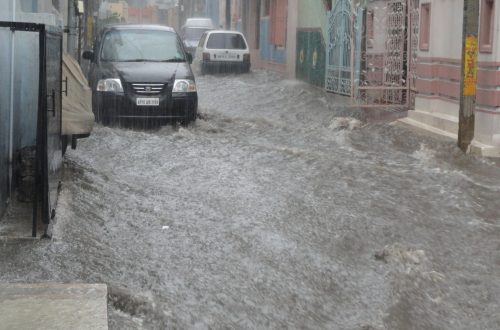
Rupert Read looks at challenges facing planet in 2025 | Eastern Daily Press
This column first appeared in the Eastern Daily Press here.
The year 2025 was once a beacon of hope. It was the target Extinction Rebellion (XR) set for Britain to reach net-zero carbon emissions.
Back in 2018, when we launched XR, we weren’t just making a bold demand; we were sounding the alarm.
Britain, with its colossal historic emissions, had a moral duty to act swiftly and fairly. We chose 2025 not as a fantasy but as a scientifically-informed timeline.
But here we are, and 2025 is already a failure. We’re nowhere near zero carbon.
The floods that devastated communities across Britain and the world in 2024 make it abundantly clear: we’re living in the era of climate breakdown, and things are only going to get worse for a considerable time to come.
When XR began, I truly believed we could change the course of history. And, in some ways, we did. XR’s greatest success was pushing the climate crisis into the spotlight, nationally (and then abroad).
For a good while we shifted the conversation, forcing the media, regular citizens and even politicians to acknowledge the urgency of decarbonisation.
But XR also fell short. The polarising nature of its tactics divided opinion and hardened opposition. It relied on the hope that governments would rise to the challenge.
They didn’t. Neither Conservative nor Labour leadership has acted with anything close to the urgency required. Decarbonising Britain by 2025? It was always going to be a huge challenge, but political inaction has made it utterly impossible.
So, where do we go from here?
First, we need to recognise that the climate crisis is not just the responsibility of activists—it’s something all of us must engage with.
We urgently need a broader, more mainstream climate ‘movement’, one that moves beyond the polarisation of the past and creates a united push for change.
This means bringing people together, from all walks of life, to demand and enact real solutions.
Second, it’s time to confront an uncomfortable truth: decarbonisation alone is no longer enough. While we must still reduce climate-deadly emissions, we also have to adapt to the reality of a world already profoundly changed by climate breakdown.
This is why I believe 2025 must be the year we pivot—hard—towards climate adaptation.
And by ‘adaptation’, I mean deep, strategic, transformative efforts to protect ourselves and our communities from the growing impacts of this crisis.
I moved on from XR some years ago, recognising the need for something far more mainstreamable, genuinely inclusive, welcoming, appealing to the silent majority. At the Climate Majority Project, which I co-direct, we’re launching the #SAFER campaign. The acronym stands for Strategic Adaptation For Emergency Resilience.
This initiative is about equipping local communities to weather the storms—literally and figuratively—and about reframing how we think about climate breakdown.
Adaptation is not an admission of defeat; it’s a necessary response to our shared vulnerability.
2024 was a brutal year for climate impacts. The worldwide epidemic of flooding (that we saw around East Anglia and elsewhere in the U.K.), culminating in the devastation in Valencia in Spain, has shattered the illusion that climate breakdown happening “elsewhere.” It’s here, on our doorsteps, and for some, quite literally in their homes.
The truth is, governments aren’t going to save us—not in time, at least. This isn’t cynicism; it’s realism. Both the Conservatives and Labour have proven unwilling to act with the urgency or ambition required. That’s why I believe 2025 must be the year we start to save ourselves and each other.
Adaptation is about more than infrastructure. It’s building resilience at the local level—strengthening connections, fostering cooperation, preparing for the challenges ahead. One thing I’ve learned from my years working for climate- and nature- action is: real change usually starts close to home.
So, Resolution 1 for the New Year: invite your neighbours round for a cuppa. Start the conversation about how you can work together to make your community stronger and more resilient.
It’s not “game over.” It never is. There is still so much we can do—if we act together.
We can ensure that, as the storms grow stronger, our communities grow stronger too.
Let’s make 2025 the year we turn towards each other, rather than away. The year we stop waiting for those ‘in charge’ to act and start taking action ourselves.



